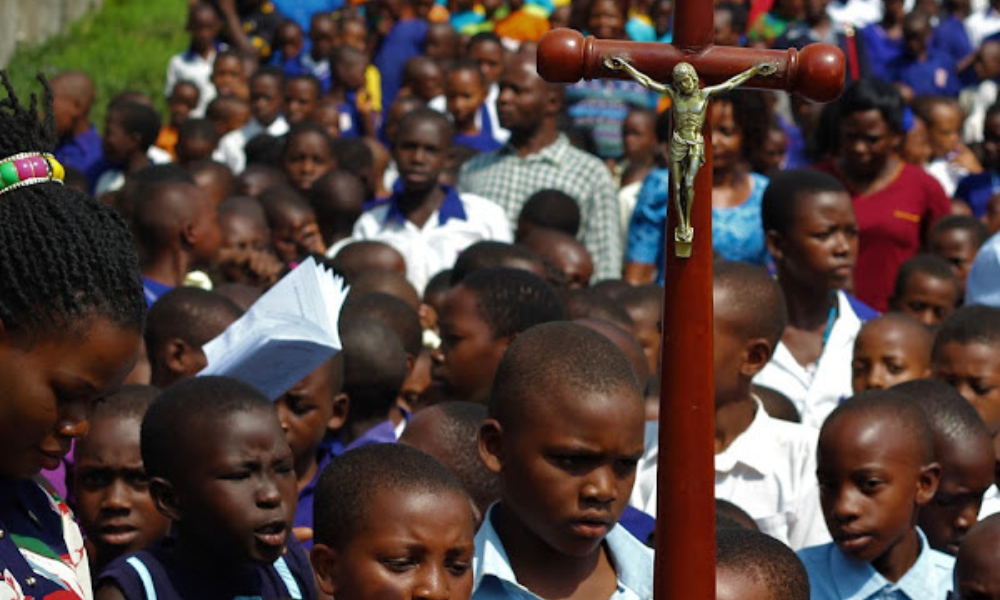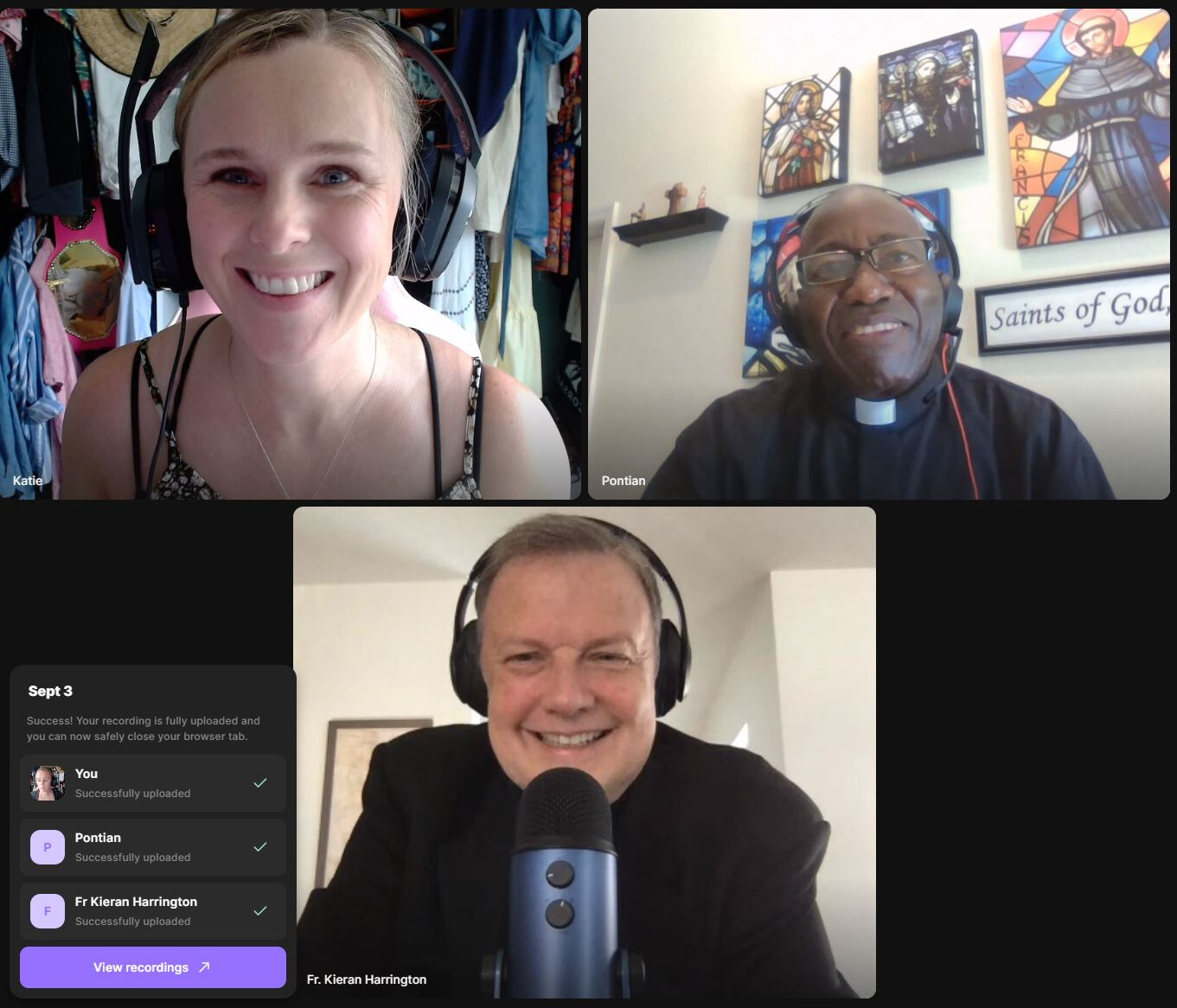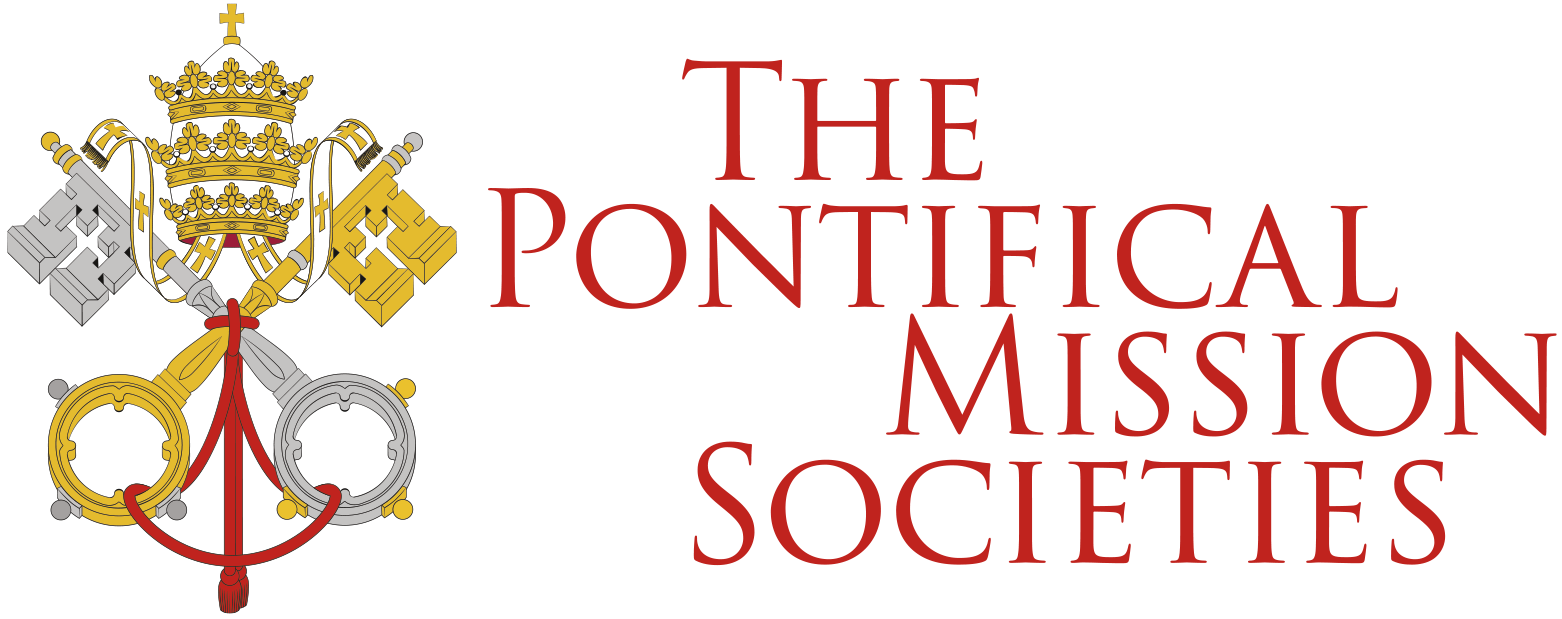
“My job is to travel the country, visit all 19 dioceses in Uganda, to spread the Good News and promote the Pontifical Mission Societies, which are, as I have come to understand, the arms of the Holy Father in ministering to the young churches.”
He was inspired to become a priest by a missionary who, like he does today, traveled far from home to bring the Good News to those who hadn’t heard it yet.
“When I was growing up, there were 14 of us in our home, and we had a missionary priest who would come regularly to evangelize in our town, and he would stay with us,” Father Pontian said on the weekly podcast “Frontiers of Faith” from The Pontifical Mission Societies. “I was still young, but I remember admiring the priest, how he was staying with us, sharing our food, inspiring us children to behave well because he was a man of God!”
By the time he was 12, young Pontian knew he wanted to be a priest, so his parents asked the missionary priest to help him enter minor seminary.
“That was the first time I moved away from home,” he said. “And that’s how I started my journey. And this missionary priest paid for my education from grade school seminary until I finished college.”
Today, as the director of The Pontifical Mission Societies in Uganda — which encompasses the Society for the Propagation of the Faith, the Missionary Childhood Association, the Society of Peter Apostle, and the Missionary Union — he works hard so that other seminarians can finish their studies. The World Mission Sunday collection, held yearly in every parish in the world on the second to last Sunday of October (October 22nd this year), helps scholarships for 38,000 seminarians globally.
“I’ve been a priest now for 29 years. I have met lots of families through the years with a son who wants to become a priest after seeing the impact of a missionary,” he said. In many outstations in Uganda, there aren’t parishes yet, so the priest often says Mass in the home of someone in the community. “This gives us a great opportunity to meet people where they are, and we celebrate the Eucharist in a home, surrounded by neighbors.”
An estimated 80 percent of the population in Uganda is Christian, and about half of this number is Catholic. As the director of The Pontifical Mission Societies USA, Monsignor Kieran Harrington pointed out, most are “cradle Christians,” meaning they were raised in Christian families, a tradition that dates back to the late 19th century.
“Uganda is often called the ‘land of martyrs,'” Father Pontian explained. “Missionaries came in 1878 and they began evangelizing. However, after seven years, a great persecution occurred: the king who had welcomed the missionaries died, and his son inherited the kingdom. He allowed the missionaries to continue working, even evangelizing within the palace. Yet, when the younger king asked them to do things that contradicted their faith, they refused.”

The Ugandan martyrs were asked to choose between the king and God, and they chose God. And so 45 people faced agonizing ends, falling victim to spears, wild dogs, or other brutal means. To this date, Uganda’s 23 Anglican martyrs, who died alongside 22 Catholic martyrs, are remembered by all, with shrines dedicated to their memory.
As Pope Francis said during his visit to the Catholic Shrine of the Martyrs of Namugongo in Uganda back in 2015, we remember with gratitude the sacrifice of the Ugandan martyrs, whose witness of love for Christ and his Church has truly gone “to the end of the earth.”
“Dear brothers and sisters, this is the legacy which you have received from the Ugandan martyrs – lives marked by the power of the Holy Spirit, lives which witness even now to the transforming power of the Gospel of Jesus Christ,” Francis said. “This legacy is not served by an occasional remembrance, or by being enshrined in a museum as a precious jewel. Rather, we honor them, and all the saints, when we carry on their witness to Christ, in our homes and neighborhoods, in our workplaces and civil society, whether we remain in our homes or journey to the farthest corners of the world.”



